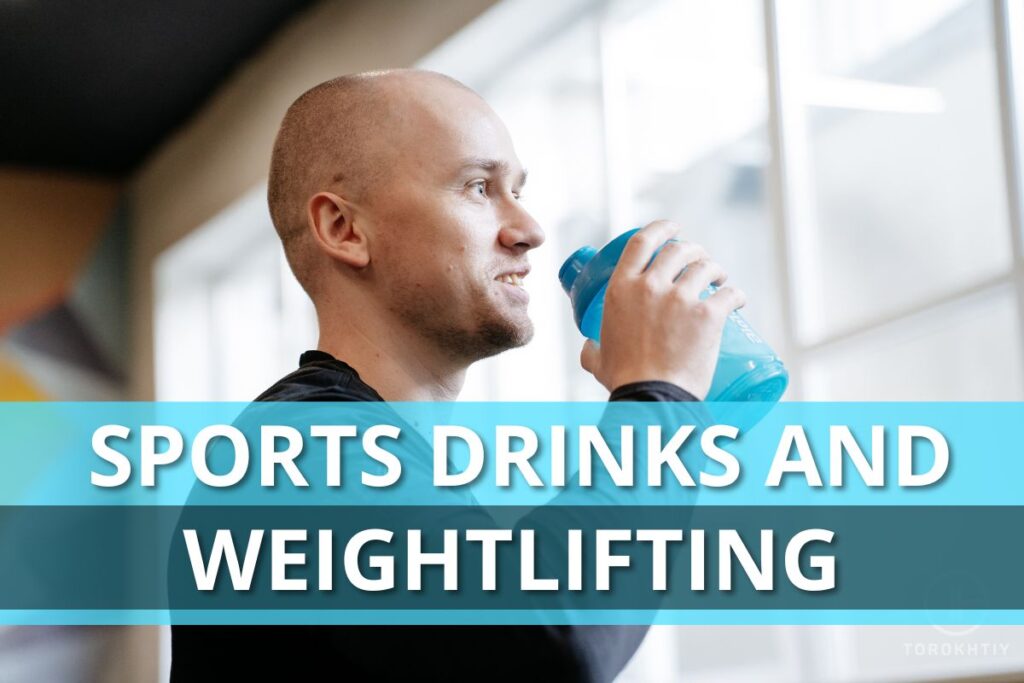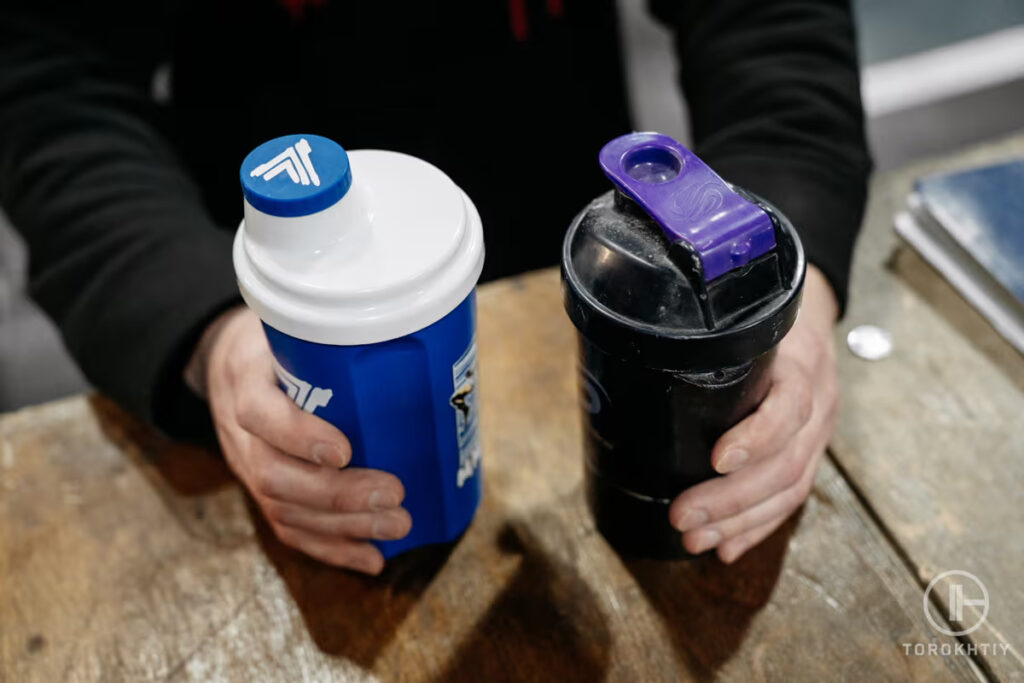Sports Drinks And Weightlifting
Author:
Unlock your full potential by engaging with our experts and community! Have questions about your fitness journey or looking for expert advice on weightlifting techniques? Don’t hesitate — leave a comment below and Sergii Putsov will provide a personalized answer and insights to help you reach your goals.
Torokhtiy is reader-supported. Some links are affiliate links, and we may earn a commission at no extra cost to you. See our disclosure page for details.

There is a wide variety of drinks on the market. They are designed specifically for the recovery of carbohydrates, the liquid lost during the physical activity, and electrolytes.
I remind that electrolytes are minerals (sodium, potassium, calcium, and magnesium). These are essential substances that are extremely important for athletes since they:
- Maintain a balance of liquid and pH in the body.
- Help nutrients penetrate cells.
- Support the work of the nervous system, muscles, and heart.
Many do not understand the difference between sports drinks and call them isotonics. Although in fact, isotonic is only one of the varieties of sports drinks.
Sports drinks are classified into three categories:
You may like it:
- Isotonics. They have the same concentration of electrolytes and glucose that is contained in the cells, tissues, and our organism’s blood. Substances from isotonics are quickly and easily absorb and also quickly renew liquid loss with sweat, while also providing with carbohydrates. Isotonic sports drinks are the optimal choice for athletes who play sports.
- Hypertonics. They contain a higher concentration of electrolytes and carbohydrates. Suitable for those who are engaged in endurance sports (marathons, ultramarathons), who train for a very long time, in conditions of high humidity and temperatures, and also sweat heavily.
- Hypotonics. They contain a lower concentration of minerals compared to blood, cells, and tissues. Suitable for those who first need to restore the lost liquid, as well as for athletes who do not train for hours and sweat a little.

According to experts, sports drinks are required only if a person trains for 60 minutes or more. Especially if a person sweats profusely. That is why the use of such drinks is appropriate for long-distance runners, cyclists, triathletes, and other athletes who train for endurance.
As for weightlifters, the benefit of using sports drinks is doubtful in this case. This is because weightlifters do not train for so long and sweat much less than athletes who train for endurance.
The weightlifters first need to pay attention to the sufficient use of liquid. Dehydration reduces physical performance by more than 2%.
A good method is to weigh up before and after training and renew the body weight lost for training by 125-150%. That is, for every lost 500 g of weight after training, you need to drink 625-750 ml of liquid. It is also necessary to drink liquid before and during training. By lightly adding some salt to the food in each meal and eating dairy products, fruits, and vegetables, you will be able to provide yourself with enough sodium, potassium, calcium, and magnesium – without sports drinks.
The advantage of sports drinks for weightlifters is that due to the presence of carbohydrates they have a pleasant taste, and this can encourage you to drink more liquid. This can be as a lifehack for those who do not like water.
It is also important to consider that sports drinks are not suitable for everyone since they can cause discomfort from the gastrointestinal tract. For this reason, it is not recommended to consume sports drinks in large portions at a time. It’s better to drink a little bit, but often. One also should not experiment with drinks before or during competitions. It is better to give preference to proven options such as usual water.
Also read:
Why Trust Us?
With over 20 years in Olympic weightlifting, strength training, nutrition coaching, and general fitness our team does its best to provide the audience with ultimate support and meet the needs and requirements of advanced athletes and professional lifters, as well as people who strive to open new opportunities and develop their physical capabilities with us.
By trusting the recommendations of our certified experts in coaching, nutrition, and sports training programming, as well as scientific consultants, and physiotherapists, we provide you with thorough, well-considered, and scientifically proven content. All the information given in the articles concerning workout programming, separate exercises, and athletic performance, in general, is based on verified data.
The product testing process is described in more detail here.
Author: Sergii Putsov
Head of Sport Science, PhD
Best Results: Snatch – 165 kg,
C&J – 200 kg
Sergii Putsov, Ph.D., is a former professional weightlifter and National team member, achieving multiple medals in the 94 kg weight category at national competitions. With a Master’s degree in “Olympic & Professional Sport Training” and a Sport Science Ph.D. from the International Olympic Academy, Greece, Sergii now leads as the Head of Sport Science. He specializes in designing training programs, writing insightful blog articles, providing live commentary at international weightlifting events, and conducting educational seminars worldwide alongside Olympic weightlifting expert Oleksiy Torokhtiy.




Still have questions after reading our article? Unlock your full potential by engaging with our experts and community! Don’t hesitate — leave a comment below and Sergii Putsov will provide a personalized answer and insights to help you reach your goals.